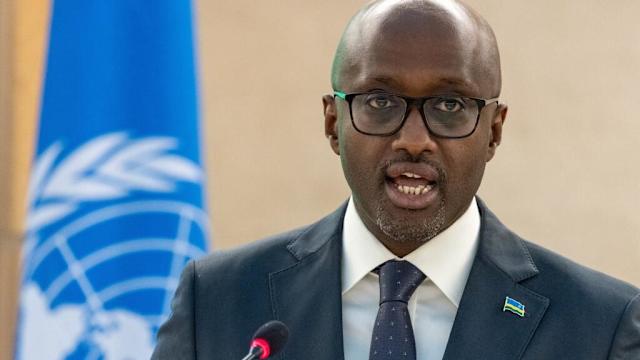
The Brussels summons will not be answered by Rwandan diplomats: Nduhungirehe
Rwandan diplomats will not answer any summons from the Belgian government after the two nations severed diplomatic ties on Monday, March 17, according to Olivier Nduhungirehe, Minister of Foreign Affairs and International Cooperation.
In reaction to Maxime Prevot, his Belgian colleague, who stated that Brussels would address Rwanda’s decision to sever diplomatic ties, including through “the convocation of the Rwandan chargé d’affaires,” Nduhungirehe made this statement.
“The immediate closure of our embassy in Brussels and the recall of all our diplomats from Belgium, who must return to Kigali within 48 hours, are naturally implied by the severance of our diplomatic relations with Belgium,” stated Nduhungirehe, who was stationed in X.
“At this time, none of our diplomats will answer any calls from the Belgian government.”
The European nation that conquered Rwanda and the Democratic Republic of the Congo aimed to “undermine” Rwanda’s growth through “pathetic attempts to sustain its neocolonial delusions,” according to the Ministry of Foreign Affairs and International Cooperation, which made the announcement.
In an effort to destabilize Rwanda and the region, the ministry said in a statement on Monday that Belgium has “clearly taken sides in [the DR Congo] conflict and continues to systematically mobilize against Rwanda in various forums, using lies and manipulation to secure an unjustified hostile opinion of Rwanda.”
Calling Rwanda’s action “disproportionate,” Prevot expressed disappointment and accused Rwanda of shunning dialogue.
In particular, Belgium’s colonial and polarizing practices, which led to the 1994 Genocide against the Tutsi, are at the heart of the long-standing diplomatic conflict between the two countries.
Belgium has continuously been charged by Rwanda with upholding neo-colonial practices, undermining Rwanda’s sovereignty, and attempting to influence Rwanda’s standing internationally.
“The relationship between our two countries is still impacted by Belgium’s destructive historical role in fostering the ethnic extremism that resulted in the Genocide against the Tutsi,” the foreign ministry stated in the statement.
In February, Rwanda halted development collaboration with Belgium, claiming the European nation was spearheading a concerted effort with the Democratic Republic of the Congo to block Rwanda’s access to international development funding, especially through multilateral organizations.
This occurred as the M23 rebels and the Congolese government coalition—which includes the FDLR, a UN-sanctioned terror group connected to the Genocide against the Tutsi—intensified their military confrontation.
All Categories
Recent Posts
Tags
+13162306000
zoneyetu@yahoo.com



